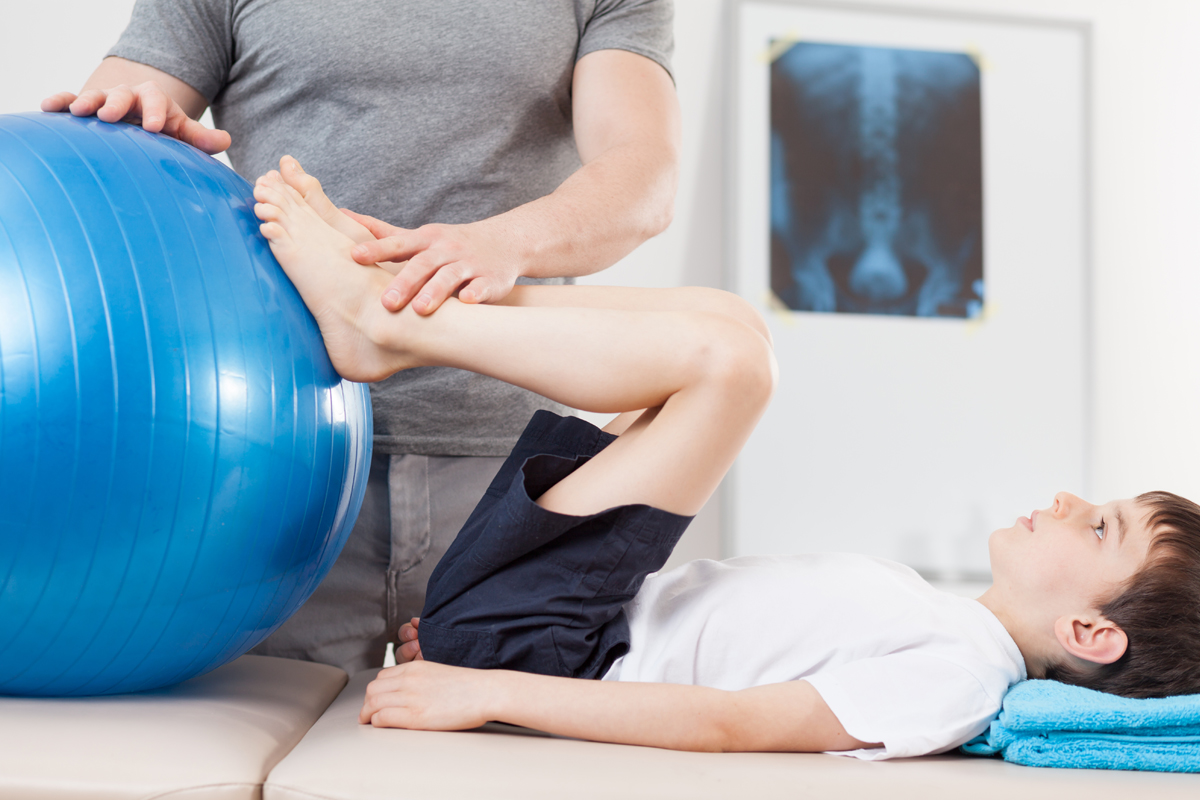How Physical Therapy Can Improve the Quality of Life for Juvenile Arthritis Patients
By Dr. Frank J. Scerbo, PT, DPT ///
Posted on July 1, 2024
July is Juvenile Arthritis Awareness Month, a time dedicated to raising awareness about the 300,000 kids in the U.S. living with this often invisible disease. Along with the Arthritis Foundation, we invite you to join the fight to overcome everyday challenges and stay #StrongerThanJA!
Juvenile arthritis (JA) is a chronic condition affecting children, leading to joint inflammation and stiffness. Physical therapy (PT) plays a crucial role in managing this condition and improving the quality of life for young patients. Here’s a detailed look at the benefits of physical therapy for juvenile arthritis patients.
1. Pain Management
Physical therapy helps alleviate pain through various techniques such as:
• Manual Therapy: Gentle joint mobilization to reduce pain and improve function.
• Therapeutic Exercises: Strengthening and stretching exercises to support joints and reduce discomfort.
• Modalities: Use of heat, cold, ultrasound, and electrical stimulation to manage pain.
2. Improved Joint Function
Maintaining and improving joint function is essential for JA patients. PT helps in:
• Increasing Range of Motion (ROM): Regular stretching exercises to maintain flexibility and prevent joint stiffness.
• Strengthening Muscles: Targeted exercises to strengthen muscles around the joints, providing better support and reducing stress on the joints.
3. Enhanced Physical Fitness
Physical therapy encourages overall physical fitness, which is vital for managing JA:
• Cardiovascular Health: Activities like swimming and cycling improve cardiovascular endurance without putting excessive stress on the joints.
• Weight Management: Regular physical activity helps maintain a healthy weight, reducing the load on weight-bearing joints.
4. Prevention of Joint Deformities
Early and consistent physical therapy can prevent or minimize joint deformities and improve posture:
• Postural Training: Techniques to improve posture and body mechanics, reducing the risk of joint deformities.
• Splinting and Bracing: Use of splints or braces to support joints during activities and prevent abnormal positioning.
5. Enhanced Mobility and Independence
PT aims to improve the overall mobility and independence of JA patients:
• Gait Training: Exercises to improve walking patterns and balance, enhancing mobility.
• Assistive Devices: Training in the use of assistive devices like crutches, walkers, or wheelchairs, if needed.
6. Improved Psychological Well-being
Managing a chronic condition like JA can be challenging for young patients. PT provides psychological benefits by:
• Boosting Confidence: Achieving physical milestones and gaining better control over their body boosts children’s confidence.
• Reducing Anxiety and Depression: Regular physical activity and positive interactions with therapists help reduce anxiety and depression associated with chronic illness.
7. Education and Empowerment
Physical therapy educates patients and their families about JA and empowers them to take an active role in managing the condition:
• Home Exercise Programs: Therapists design individualized exercise programs that patients can perform at home to maintain progress.
• Self-management Strategies: Teaching patients techniques to manage symptoms and prevent flare-ups.
Conclusion
Physical therapy offers numerous benefits for juvenile arthritis patients, from pain management and improved joint function to enhanced mobility and psychological well-being. By incorporating PT into the treatment plan, young patients can lead more active, fulfilling lives despite their condition.
Regular sessions with one of our trained physical therapists at Scerbo Physical Therapy & Sports Rehabilitation, combined with a personalized exercise program, can significantly improve the quality of life for children with juvenile arthritis. Contact us for a physical evaluation of your child, our team of expert clinicians and physical therapists will help improve your children’s condition.
For to find more information about Juvenile Arthritis visit arthritis.org/strongerthanja and share it with family and friends to see some of the incredible stories of our JA Warriors!

